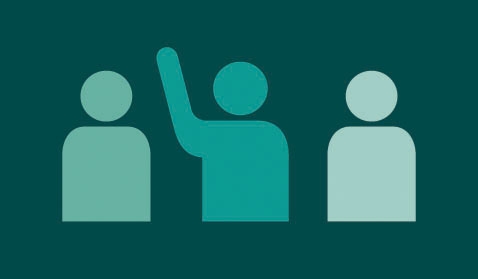
For many reporters, working with U.S. Census data is like going to the dentist — you know it’s important, but it often means a painful and prolonged visit to the dreaded U.S. government census website. But since the launch of Census Reporter, reporting on this data no longer has to feel like pulling teeth.
The display of Census facts is light-years away from the way the same information appears on the U.S. government website, where journalists can spend hours sifting through 1,500 tables of data. “It’s very difficult to use, which is why we built this project in the first place,” said Sara Schnadt, the project’s designer and community liaison.
Schnadt presented the site at the recent Hacks/Hackers Buenos Aires Media Party, which gathered media and technology experts from around the world to brainstorm new ways to share information.
The new platform presents information in a way designed to engage and encourage collaboration among media professionals across disciplines from graphic design to investigation.
To develop the site, Schnadt’s team started by surveying 75 journalists and interviewing 15 of them in depth. After collecting that information, she said, “we white-boarded for about two days straight” to figure out what journalists needed from the Knight News Challenge-funded platform.
What they found, Schnadt said, was that “journalists either need, from census data, places of fact or facts of place.” Those two components went on to become the key features of Census Reporter’s landing page.
The site’s navigation was designed to encourage interactions between journalists, which Schnadt suggests might help them “tell a better story” than they might get by crunching the numbers alone. She wants to see the site become an “evangelical tool to make journalists want to use data more in their stories.”
Census Reporter demonstrates the growing importance of and relationship between targeted audience research and media product, be it a new website or a new piece of investigative journalism. It also addresses the need for new ways to make publicly available data easier to access.
The project also reflects the trend toward innovators allowing and even encouraging others to use their code. Census Reporter’s code was open source from the beginning, so that developers around the world could use or adapt it. Programmers in South Africa took note, and built their own platform for their census data before the U.S. version was even finished.
Using Census Reporter as a model, Greg Kempe and a team from Code for South Africa created the new site Wazi for that nation’s census data, of which only a provisional amount had been made available online on the official government website. Additional platforms have been or are being built in Kenya, Nigeria and Ghana, Kempe told IJNet.
Deasy is a Buenos Aires-based freelance journalist.
This post is also published on IJNet, which is produced by ICFJ.
The International Journalists' Network, IJNet, keeps professional and citizen journalists up to date on the latest media innovations, online journalism resources, training opportunities and expert advice. ICFJ produces IJNet in seven languages: Arabic, Chinese, English, Persian, Portuguese, Russian and Spanish. IJNet is supported by donors including the John S. and James L. Knight Foundation.
Image: Census Reporter logo.